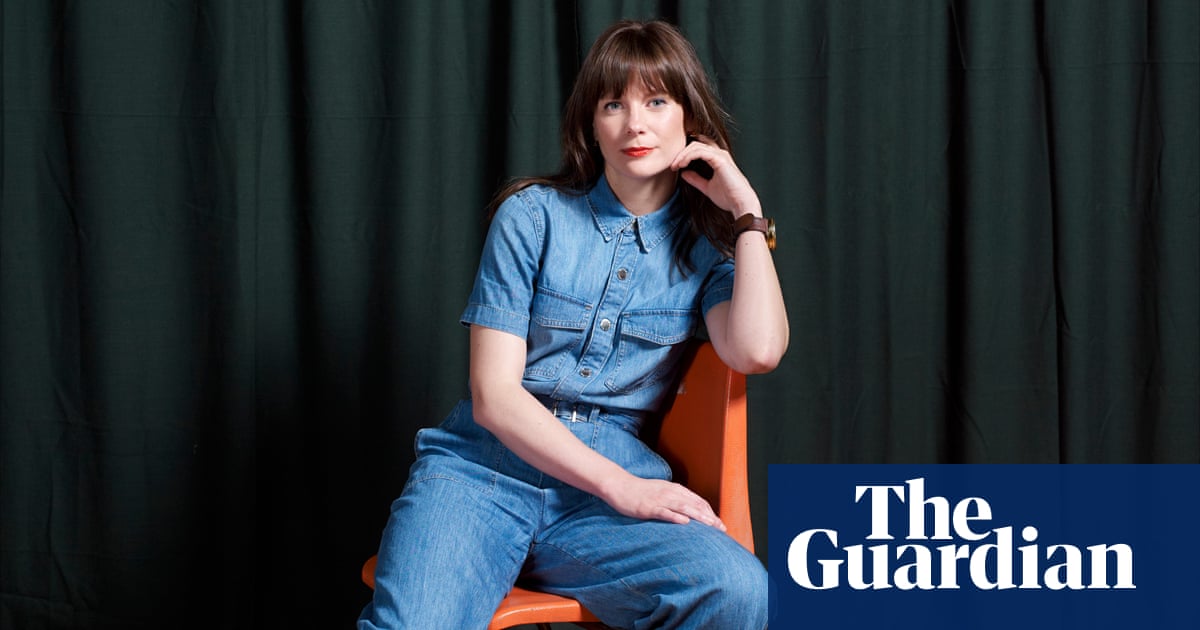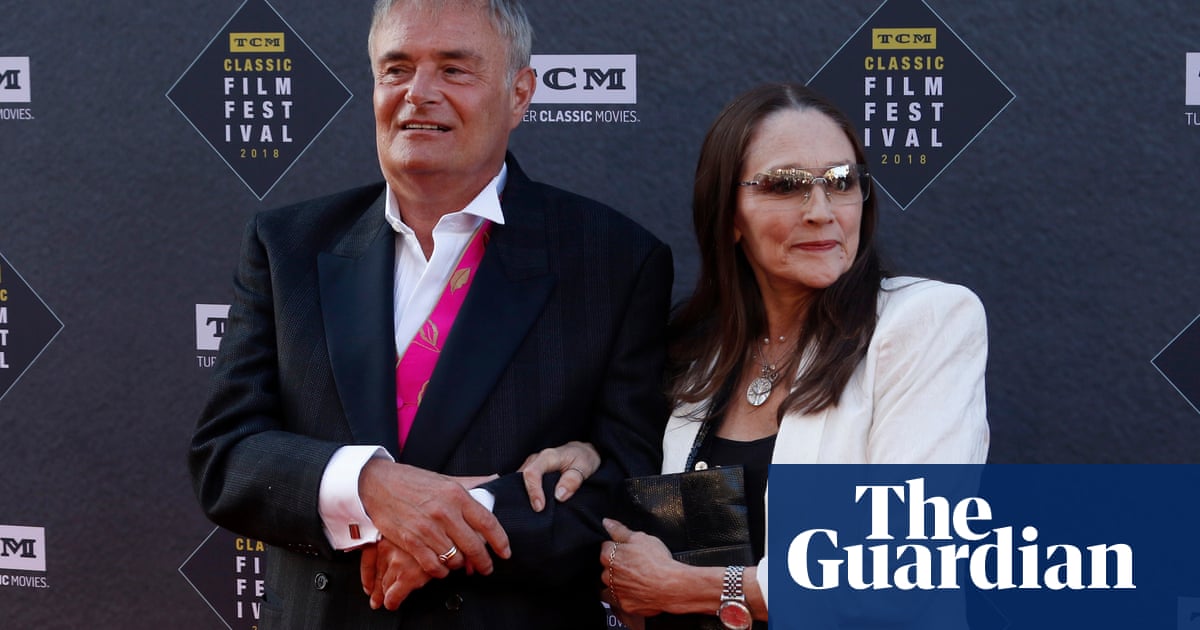
amsin Greig, 54, was born in Maidstone and studied drama at Birmingham University. Her TV roles include comedies Black Books, Green Wing, Episodes and Friday Night Dinner, alongside dramas such as Julian Fellowes’s Belgravia and BBC One’s Talking Heads last year. She is also an acclaimed stage actor and in 2007 won an Olivier award for her portrayal of Beatrice in Much Ado About Nothing. Greig plays Lady Capulet in a new filmed production of Romeo and Juliet from the National Theatre.
Romeo and Juliet was made under Covid-safe protocols. How was that?
Like nothing I’d ever experienced. We were given four weeks to rehearse, which is unheard of for screen work, so that was a gift – but also very strange. We each had a little taped-off area with a chair, a music stand for our script and a box for props. I brought in my own mug for tea, which nobody was allowed to touch. We couldn’t go near each another, which in a play about lovers and families was quite difficult. When it came to filming the performance, we did Covid tests every few days, then were allowed contact within a small window. That phrase “the obstacle is the way” applied. Limitations made for greater creativity. Each negative test was cause for celebration but it was tense. There were a few scares when it could have unravelled.
It was shot in the National’s Lyttelton theatre. Was its emptiness eerie?
It was like going back to a childhood home – full of memories but now inhabited anew. It was a weird hybrid experience, as is the film itself. It’s an excellent Toyota Prius of theatre and film.
That should be on the posters.
Or maybe Toyota could sponsor it. That would be good.
How is the play relevant and resonant today?
In Romeo and Juliet there’s so much division in society, yet it’s difficult to pinpoint who are Montagues and who are Capulets. That reflects where we’ve come to. Be they Democrats or Republicans, Labour or Tory, politicians look pretty much the same. It speaks to our polarisation. We need visionaries, like Mercutio or the Prince, who can build a middle ground and establish a conversation. Without that, people are going to lose lives. It’s young people who pay the price.
Was it strange to film party scenes during lockdown?
People dancing close to one another – how exotic! I felt a nostalgia for that release of energy and passion, but also a quiet panic. It felt dangerous. But surely theatre should feel dangerous.
Some characters, including yours, aren’t traditional interpretations. Tell us about that.
Simon Godwin [the director] was interested in different approaches to the story. So Mercutio and Benvolio have a gay relationship and Lord Capulet is switched with Lady Capulet. The head of the house is no longer the father but a very powerful, controlling mother figure. We explore what that does to her daughter.
How did you go about constructing this amalgam character? Did anyone inform your portrayal?
Claire Underwood, Robin Wright’s character in House of Cards, and I continually went back to what Shakespeare wrote about Lord Capulet. I also drew on how constrained by the regulations I felt in that rehearsal room. That’s when Lady Capulet became someone who never touches anybody. She’s incredibly cold – and at her most vibrant when she’s masked at the ball.
Jessie Buckley plays Juliet. How was working with her?
Thrilling. I’d admired her work from afar for a long time. She’s so vibrant and full of heart as Juliet. Those qualities are in Lady Capulet too but she contains it, like a deep freeze. When Jessie hugged me unexpectedly in rehearsals, I involuntarily stiffened. I was thinking, is this allowed? When did we last have a Covid test? So that was real but became the key to their relationship.
How about Josh O’Connor as Romeo?
Josh did a great job on The Crown and does a great job in this too. He’s another captivating artist of his generation. How wonderful to put those two together.
Do you see yourself moving away from comedy and more towards drama?
I always did straight theatre before I came into the company of Dylan Moran on Black Books. But then people thought I was “comedy actress Tamsin Greig”, which seems slightly reductive. I do enjoy comedy but that’s not all I do. Maybe I have to do other roles, just to stop people using inappropriate epithets.
What did you make of your other Black Books co-star Bill Bailey winning Strictly?
Man alive, I watched every second of it. I always knew he was groovy. You assumed he’d be the long-haired, druid version of Ed Balls. But he’s a musical genius and was able to translate that into his body. When he won, I burst into tears. It was the most beautiful moment.
You’ve played Debbie Aldridge in The Archers on and off for 20 years. Will that continue?
I hope so. At the beginning of lockdown, they came up with the interesting idea of doing characters’ internal monologues. I set up a DIY studio in my son’s wardrobe. It’s been difficult to get to Birmingham to record. My sphere of influence has shrunk to within 500 yards of my house. Any further and I get a nosebleed.
Friday Night Dinner got record ratings in lockdown. Was that gratifying?
Yes, it suddenly caught the imagination of a new generation. I was getting “Shalom Jackie!” shouted at me in Sainsbury’s. How fantastic that people have gravitated towards a show that’s about going home and being welcomed, no matter how dysfunctional the family are.
Do people ever mistake you for another actress entirely?
Not an actress, but I get Sharleen Spiteri [from the band Texas]. This woman said: “You’re playing at the Castle tonight, aren’t you?” I said: “Am I? I don’t think I am.” She was having none of it, so in the end, it was easier to say yes.
In your Green Wing guise you once joined junior doctors on a picket line. What do you make of recent treatment of the NHS?
NHS workers have achieved miracles over the past year. We must make sure we treasure them. The NHS is an unbelievable occurrence. There’s nothing like it in the world. It came out of the second world war, and hopefully we can have a similar sort of visionary care for ideas and institutions coming out of this crisis.
Do you worry about the theatre industry’s recovery?
The past year has shown us how undervalued freelancers are. Theatre happens as a miraculous collaboration, supported by a myriad army of freelancers. This year has shown how there’s no safety net. But live performance will find a way because in its absence, we’ll see what we’re missing. Whether it’s a play, film or gig, it’s not a distraction, it’s our lifeblood.
How did you spend lockdown?
My husband, Richard Leaf, is a writer and he adapted a novel called Meet Me at the Museum by Anne Youngson into a Radio 4 drama, so we recorded that together. Otherwise, lots of dog walks, cooking and trying to look after our three children.
Which cultural things have you been enjoying?
Jack by Marilynne Robinson. I think she’s American’s greatest living novelist, so I eked it out for as long as possible. We also binge-watched Call My Agent, It’s a Sin, I May Destroy You and Pretend It’s a City.
What will be the first thing you’ll do in a newly Covid-free world?
I really hope Bob Dylan tours again. I want to see him one more time.
I once read that the only thing you really laugh at is people falling over. True?
That is funny but it’s not the only thing. I kept a book of things our children said and that’s hilarious. Our dog is ridiculous too. During lockdown, I couldn’t have been more grateful for that creature.
We’re speaking on a Friday, so I’ve got to ask: what’s for Friday night dinner?
I might go to the chippy and pick up fish and chips. My husband loves a pickled egg but I think they’re a living, breathing, honking disaster. But he doesn’t understand my love for pickled gherkins, so we have a little pickle standoff. We have such an exciting life.
Romeo and Juliet is on Sky Arts on 4, 5 and 8 April. Sky Arts is free-to-air and available for everyone in the UK on Freeview channel 11. Meet Me at the Museum is on BBC Sounds












